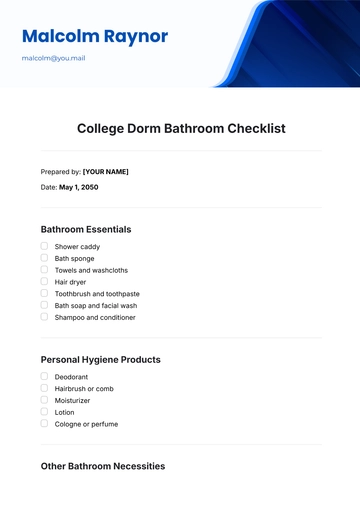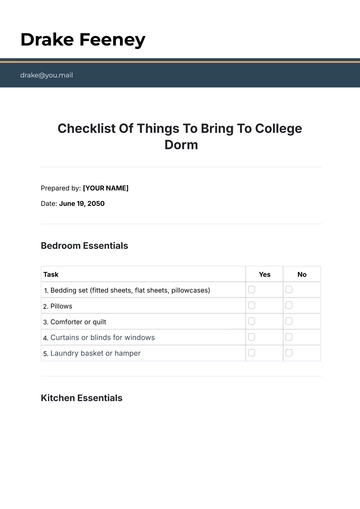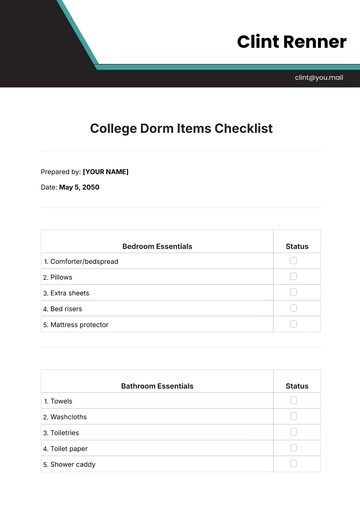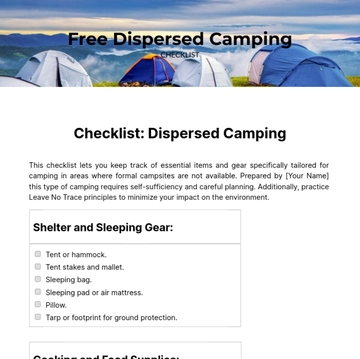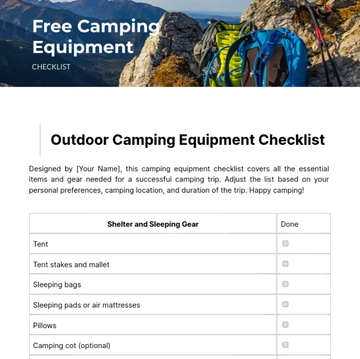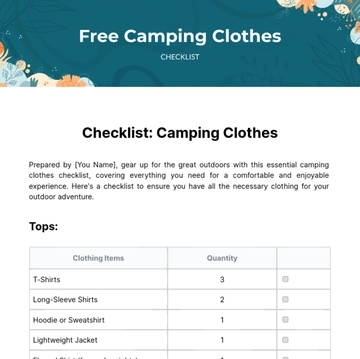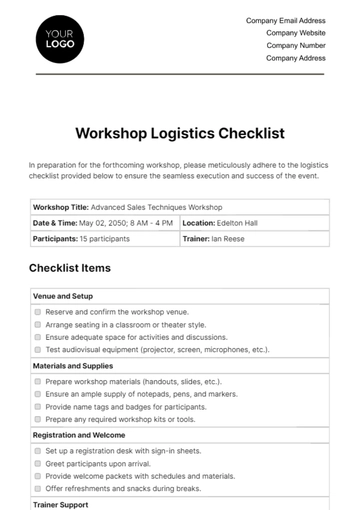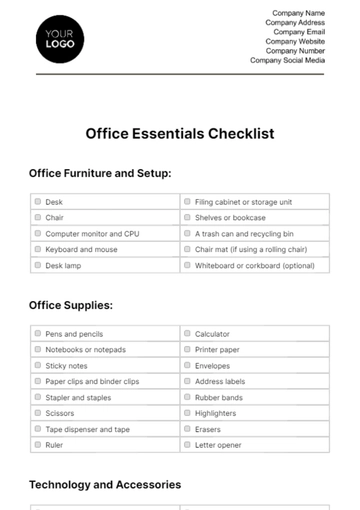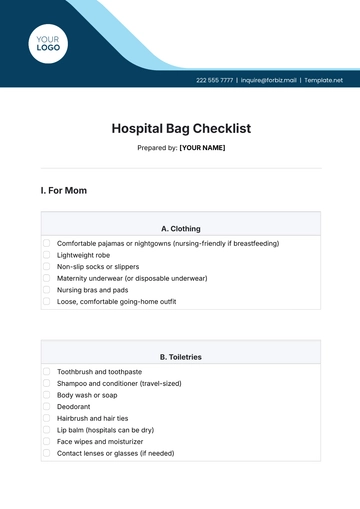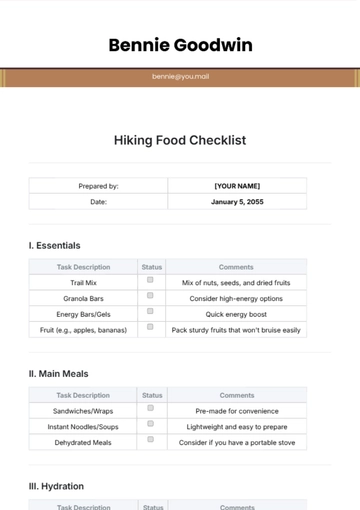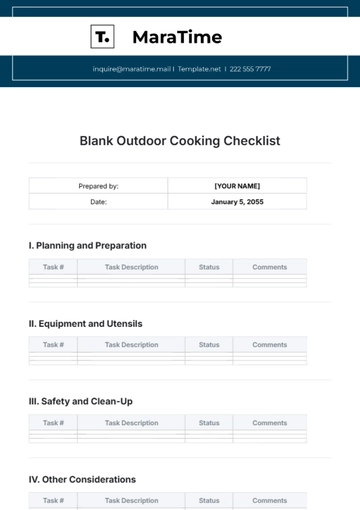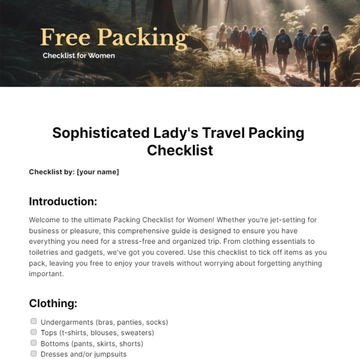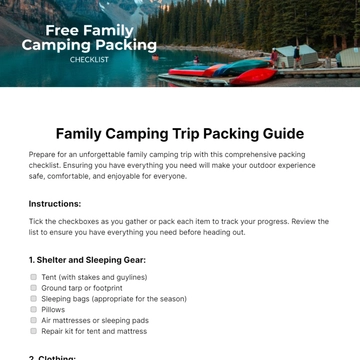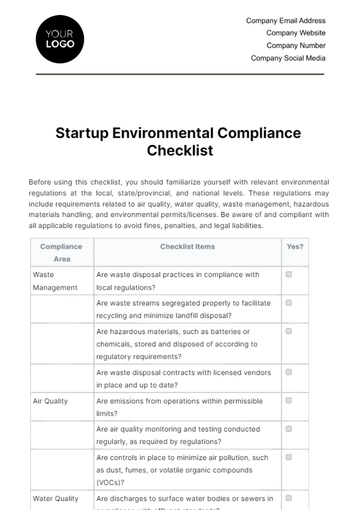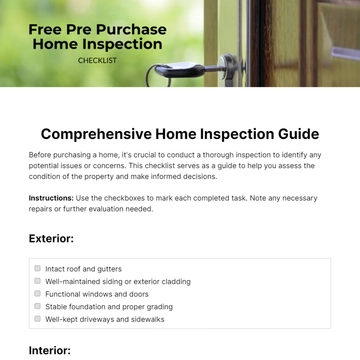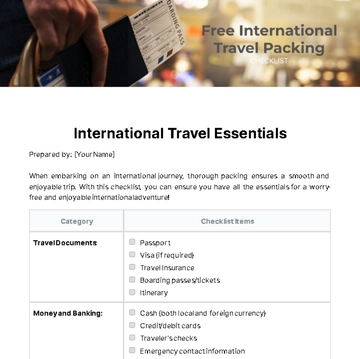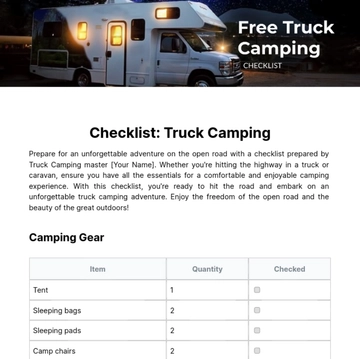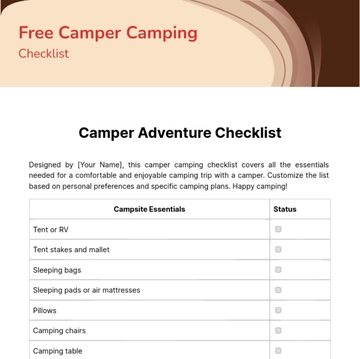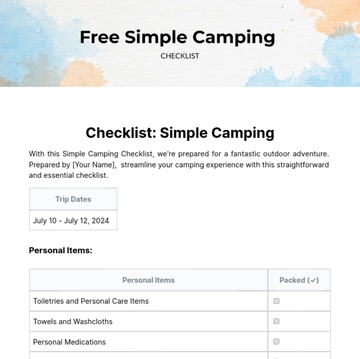Free Solo Camping Checklist
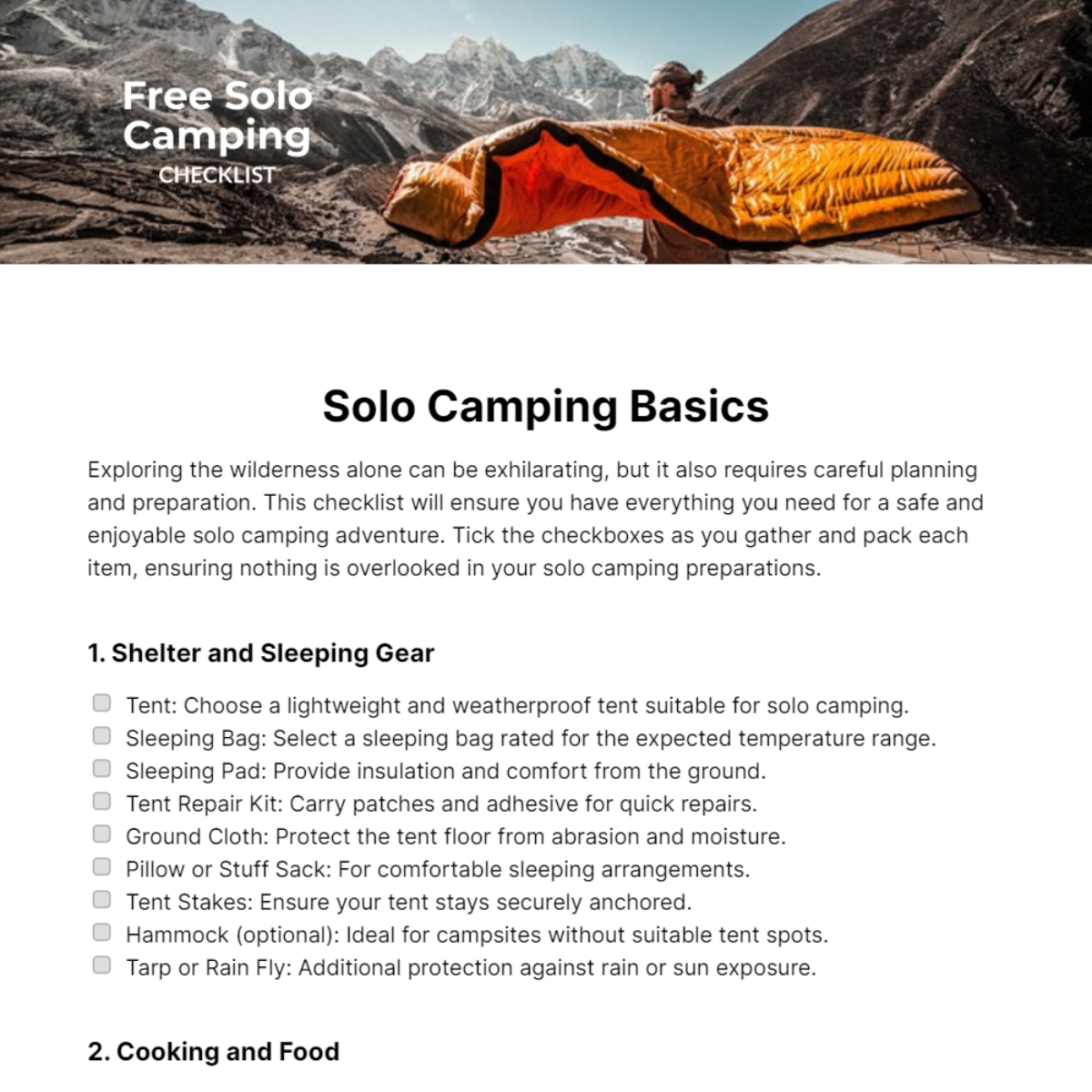
Exploring the wilderness alone can be exhilarating, but it also requires careful planning and preparation. This checklist will ensure you have everything you need for a safe and enjoyable solo camping adventure. Tick the checkboxes as you gather and pack each item, ensuring nothing is overlooked in your solo camping preparations.
1. Shelter and Sleeping Gear
Tent: Choose a lightweight and weatherproof tent suitable for solo camping.
Sleeping Bag: Select a sleeping bag rated for the expected temperature range.
Sleeping Pad: Provide insulation and comfort from the ground.
Tent Repair Kit: Carry patches and adhesive for quick repairs.
Ground Cloth: Protect the tent floor from abrasion and moisture.
Pillow or Stuff Sack: For comfortable sleeping arrangements.
Tent Stakes: Ensure your tent stays securely anchored.
Hammock (optional): Ideal for campsites without suitable tent spots.
Tarp or Rain Fly: Additional protection against rain or sun exposure.
2. Cooking and Food
Portable Stove or Campfire Cooking Equipment: Choose based on regulations and personal preference.
Fuel or Firewood: Sufficient for the duration of your trip.
Cooking Utensils: Including pots, pans, utensils, and a cutting board.
Food and Snacks: Pack lightweight, non-perishable items that are easy to prepare.
Water Filtration or Purification System: Ensure access to safe drinking water.
Cooler (optional): For perishable food items.
Bear Canister or Hanging System: Protect food from wildlife.
Trash Bags: Leave-no-trace ethics require proper waste disposal.
Biodegradable Soap: For cleaning utensils and dishes.
Matches/Lighter: Essential for starting fires.
3. Clothing and Personal Items
Weather-Appropriate Clothing: Include layers for changing conditions.
Hiking Boots or Sturdy Shoes: Provide support and protection for your feet.
Hat and Sunglasses: Shield yourself from the sun's rays.
Personal Hygiene Items: Toothbrush, toothpaste, biodegradable soap, etc.
First Aid Kit: Include basic medical supplies and any personal medications.
Insect Repellent: Protect against mosquitoes and other pests.
Map and Compass (or GPS): Essential for navigation in remote areas.
Multi-Tool or Knife: Useful for various tasks around camp.
Sunscreen: Prevent sunburn during outdoor activities.
Emergency Whistle: Signal for help if needed.
4. Safety and Miscellaneous
Headlamp or Flashlight: Essential for navigating in low light conditions.
Fire Extinguisher: For safety around the campfire.
Emergency Shelter: Lightweight options like a space blanket.
Personal Locator Beacon (PLB) or Satellite Messenger (optional): Provide a means of summoning help in case of emergency.
Repair Kit: Include items for gear, clothing, and equipment repairs.
Entertainment: Books, games, or a musical instrument for relaxation.
Personal Identification and Emergency Contact Information: Carry these on your person at all times.
Leave No Trace Principles: Familiarize yourself and adhere to outdoor ethics.
Trip Plan: Share your itinerary with a trusted friend or family member.
Trash Bag: Pack out all waste and leave the campsite cleaner than you found it.
- 100% Customizable, free editor
- Access 1 Million+ Templates, photo’s & graphics
- Download or share as a template
- Click and replace photos, graphics, text, backgrounds
- Resize, crop, AI write & more
- Access advanced editor
Presenting our meticulously designed Solo Camping Checklist Template, an essential tool for adventurers. This customizable checklist, editable in our Ai Editor Tool, ensures you never forget crucial gear. Tailor it to your needs for a seamless solo camping experience, brought to you by Template.net's user-friendly design expertise. Get it today!
You may also like
- Cleaning Checklist
- Daily Checklist
- Travel Checklist
- Self Care Checklist
- Risk Assessment Checklist
- Onboarding Checklist
- Quality Checklist
- Compliance Checklist
- Audit Checklist
- Registry Checklist
- HR Checklist
- Restaurant Checklist
- Checklist Layout
- Creative Checklist
- Sales Checklist
- Construction Checklist
- Task Checklist
- Professional Checklist
- Hotel Checklist
- Employee Checklist
- Moving Checklist
- Marketing Checklist
- Accounting Checklist
- Camping Checklist
- Packing Checklist
- Real Estate Checklist
- Cleaning Checklist Service
- New Employee Checklist
- Food Checklist
- Home Inspection Checklist
- Advertising Checklist
- Event Checklist
- SEO Checklist
- Assessment Checklist
- Inspection Checklist
- Baby Registry Checklist
- Induction Checklist
- Employee Training Checklist
- Medical Checklist
- Safety Checklist
- Site Checklist
- Job Checklist
- Service Checklist
- Nanny Checklist
- Building Checklist
- Work Checklist
- Office Checklist
- Training Checklist
- Website Checklist
- IT and Software Checklist
- Performance Checklist
- Project Checklist
- Startup Checklist
- Education Checklist
- Home Checklist
- School Checklist
- Maintenance Checklist
- Planning Checklist
- Manager Checklist
- Wedding Checklist
- Vehicle Checklist
- Travel Agency Checklist
- Vehicle Inspection Checklist
- Interior Design Checklist
- Backpacking Checklist
- Business Checklist
- Legal Checklist
- Nursing Home Checklist
- Weekly Checklist
- Recruitment Checklist
- Salon Checklist
- Baby Checklist
- Equipment Checklist
- Trade Show Checklist
- Party Checklist
- Hospital Bag Checklist
- Evaluation Checklist
- Agency Checklist
- First Apartment Checklist
- Hiring Checklist
- Opening Checklist
- Small Business Checklist
- Rental Checklist
- College Dorm Checklist
- New Puppy Checklist
- University Checklist
- Building Maintenance Checklist
- Work From Home Checklist
- Student Checklist
- Application Checklist
